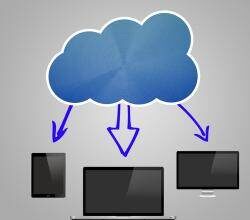Note: this post is cross-posted at the Panjiva blog, which discusses issues affecting the global trade community. I’ve recently joined Panjiva’s advisory board (alongside Panjiva investor and reknowned economist Larry Summers), and I’m proud to be helping this new venture transform global trade by providing an unprecedented level of transparency about the strengths and weaknesses of companies engaged in it. Learn more about Pan…
Note: this post is cross-posted at the Panjiva blog, which discusses issues affecting the global trade community. I’ve recently joined Panjiva’s advisory board (alongside Panjiva investor and reknowned economist Larry Summers), and I’m proud to be helping this new venture transform global trade by providing an unprecedented level of transparency about the strengths and weaknesses of companies engaged in it. Learn more about Panjiva at their web site or blog.
While I’m a neophyte on matters of global trade (fortunately fellow MIT alum and Panjiva investor Larry Summers is a bit more qualified on those matters), I do know a thing or to about how people interact with information. So it’s my delight to share a short series of posts on the macroeconomics of information and attention.
In Brief Principles of Macroeconomics, Greg Mankiw lists ten principles of economics that he divides into three groups:
How People Make Decisions
- People Face Tradeoffs.
- The Cost of Something is What You Give Up to Get It.
- Rational People Think at the Margin.
- People Respond to Incentives.
How the Economy Works as A Whole
- Trade Can Make Everyone Better Off.
- Markets Are Usually a Good Way to Organize Economic Activity.
- Governments Can Sometimes Improve Market Outcomes.
How People Interact
- A Country’s Standard of Living Depends on Its Ability to Produce Goods and Services.
- Prices Rise When the Government Prints Too Much Money.
- Society Faces a Short-Run Tradeoff Between Inflation and Unemployment. .
Nobel Laureate Herb Simon articulated the concept of an attention economy in his 1971 article, “Designing Organizations for an Information-Rich World”:
in an information-rich world, the wealth of information means a dearth of something else: a scarcity of whatever it is that information consumes. What information consumes is rather obvious: it consumes the attention of its recipients. Hence a wealth of information creates a poverty of attention and a need to allocate that attention efficiently among the overabundance of information sources that might consume it.
In the next few posts, I’ll try to apply Mankiw’s principles to Simon’s conception of an attention economy to establish a macroeconomics of information and attention.






